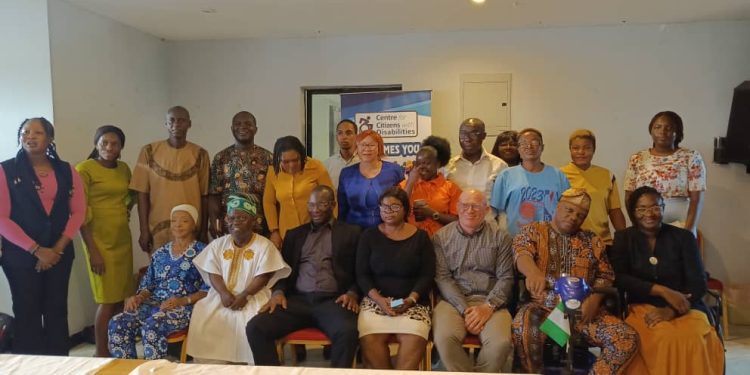The Centre for Citizens with Disabilities (CCD) has demanded that agencies responsible for the administration of criminal justice (ACJ) systems should treat persons with disabilities (PWDs) with dignity and respect during investigations, interviews, and court proceedings.
This, according to the CCD, will ensure their safety and security in providing assistance and support in any incidents of discrimination or harassment against PWDs, and enhance access to justice for marginalized groups.
The institutions namely: The Nigeria Police Force, Nigeria Security and Civil Defence Corps (NSCDC), Nigeria Correctional Service (NCS), Court/Judiciary, National Human Rights Commission (NHRC), Office of the Public Offenders, and National Commission for Persons with Disabilities (NCPWD).
CCD made this call during a press conference on Promoting Disability Rights and Access to Justice for PWDs, a project supported by Voice.
Ms. Christiana Njoku, Project Manager, charged the relevant actors to “ensure that PWDs have equal access to security services, protection, accessible communication and information during emergency situations.”
Njoku noted that PWDs often encounter significant barriers when seeking justice, leading to a system that can be inherently unequal and that it is imperative that these barriers are addressed and there are no discriminations against PWDs when accessing justice.
She also asked that “the NCPWD should collaborate and partner with relevant stakeholders to develop policies and programmes that will enhance access to justice for PWDs, ensuring their rights are recognized and protected within the legal system, ensure that justice service providers implement accessibility measures and reasonable accommodation in all justice-related facilities and services, conduct training programmes for justice personnel on disability rights and the specific needs of PWDs in legal contexts, monitor and evaluate the effectiveness of justice services in meeting the needs of PWDs, and recommending improvements as necessary.”
Earlier, Ms Florence Attah, CCD’s Programme Officer, shared that the organization has embarked on a series of advocacy and sensitizations to ensure that the rights of PWDs are protected and that they have access to justice on an equal basis with their counterparts without disabilities.
Attah also called on journalists to propagate the message and play up their quota in ensuring that PWDs have access to journalists.
Barr Bolarinwa Salami, the Lagos State Chairman of the Joint National Association of Persons with Disabilities (JONAPWD) commended CCD for the advocacy and engagements towards improving wellbeing and enhancing access to justice for PWDs in Lagos and Nigeria as a whole.
Bolarinwa, who shared his experiences of discrimination within the judicial system, shared that there is a need for institutional reforms which is germane.
He also called for more enlightenment and behavioural change among officers who are responsible for administering justice.
Mr. Tolani Ojuri, the Chairman of the Albinism Association of Nigeria (AAN), Lagos State Chapter, shared that the project is already yielding impact as there are high level of commitment from the stakeholders.
“We have some gains already, we can see these people showing commitment and understand there is a gap and they are ready to learn and improve.
“They are open to training but we also understand government bureaucracy, if the head should leave the office or transferred to another location, it means our advocacy will start from the beginning,” he added.
Mrs Ann Anyaele, the Senior Programme Manager at CCD, also charged justice providers to adhere to the recommendations that have been made by CCD, adding that “those who have been sensitized should go ahead to create awareness among those who are yet to be informed about the rights and privileges of PWDs.”

